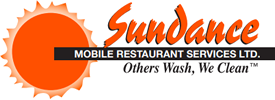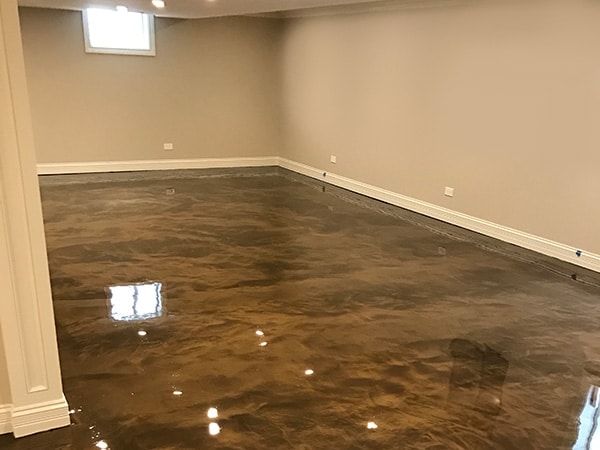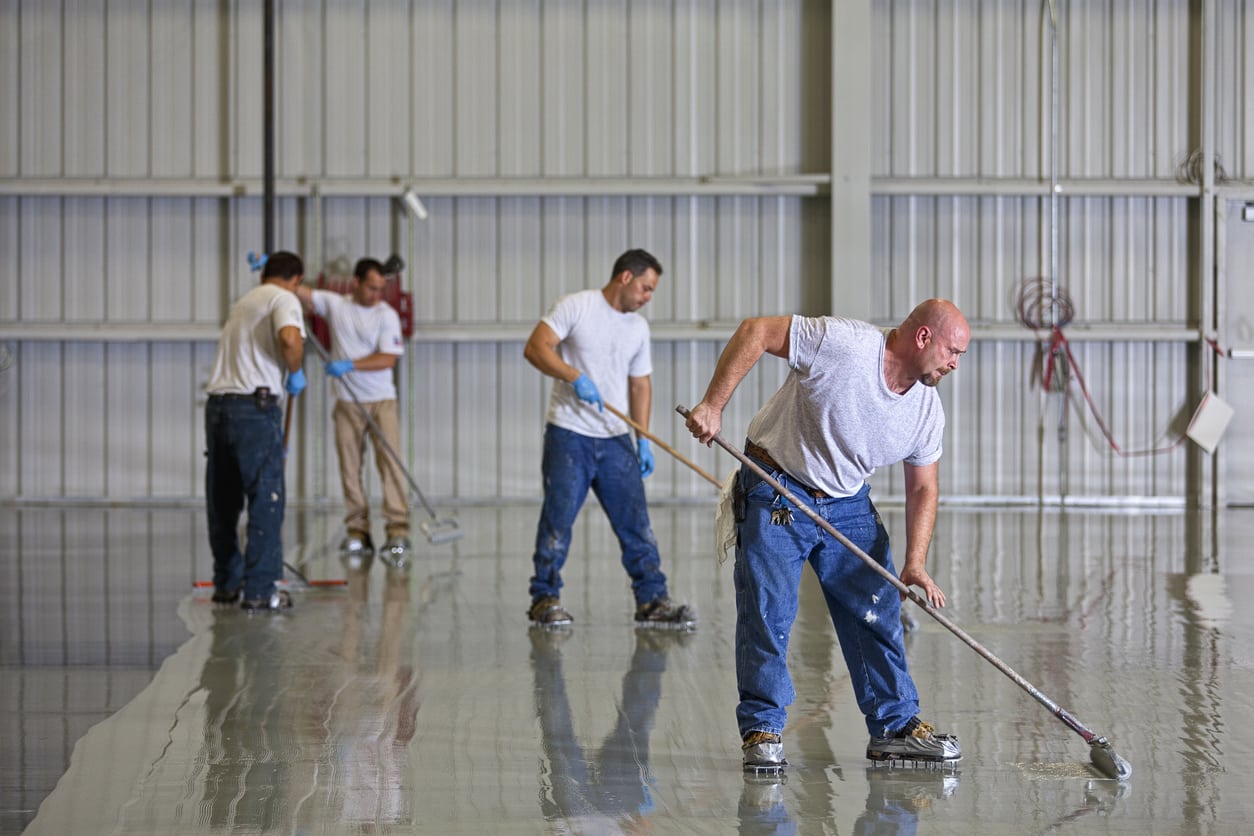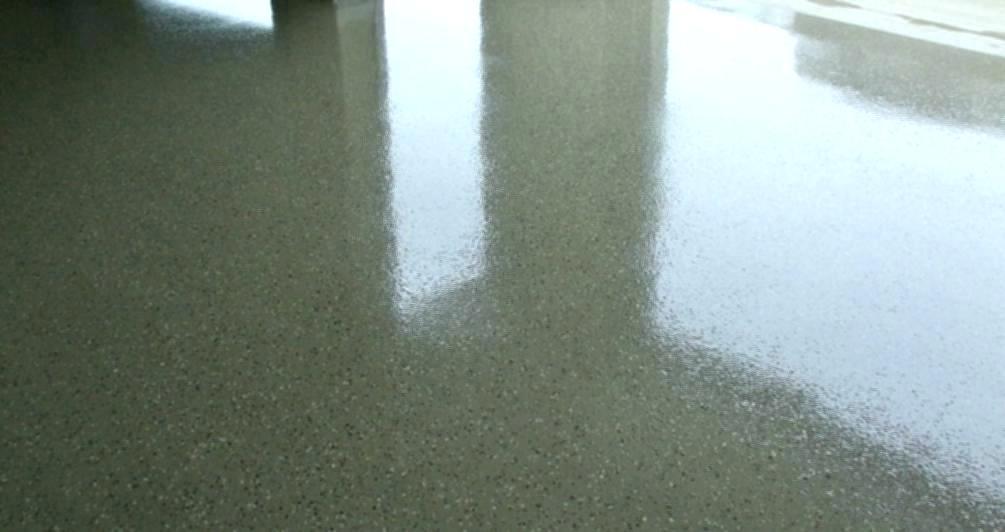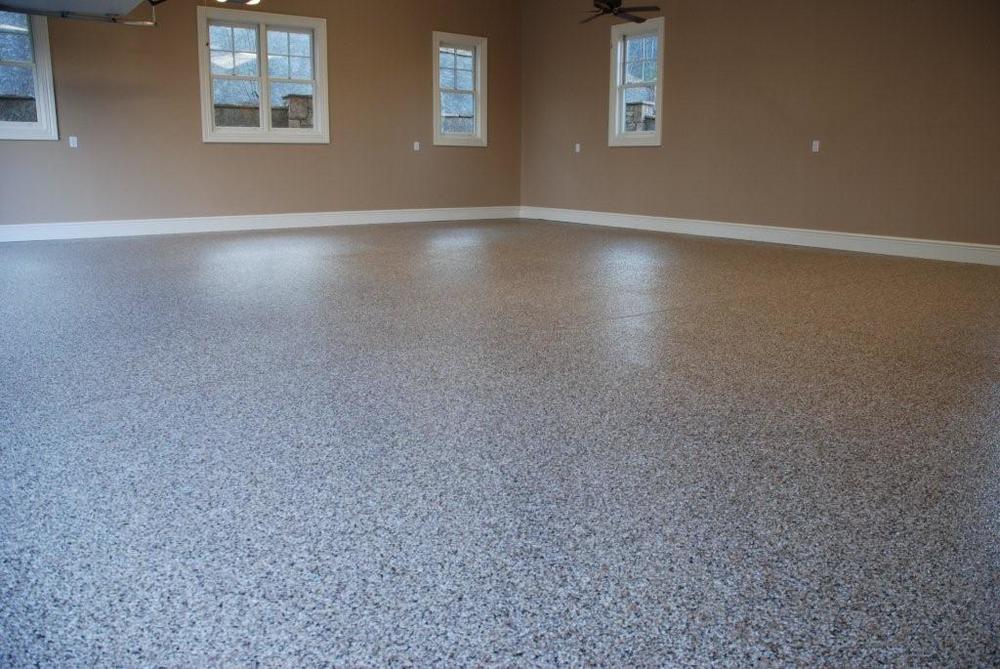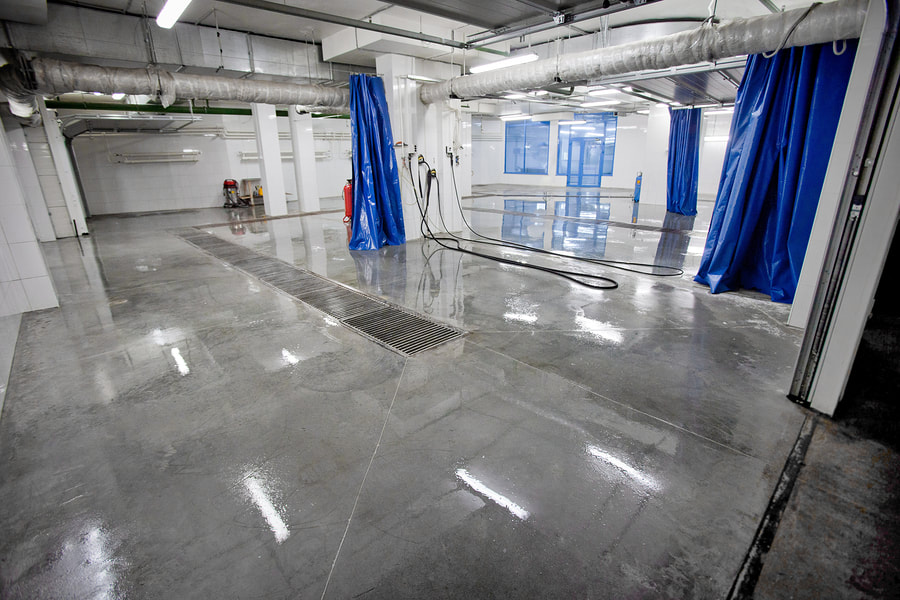Epoxy Floor Coating & Concrete Sealing
Concrete is typically sealed with either a film forming sealer (topical coating) or with penetrating sealer (impregnator).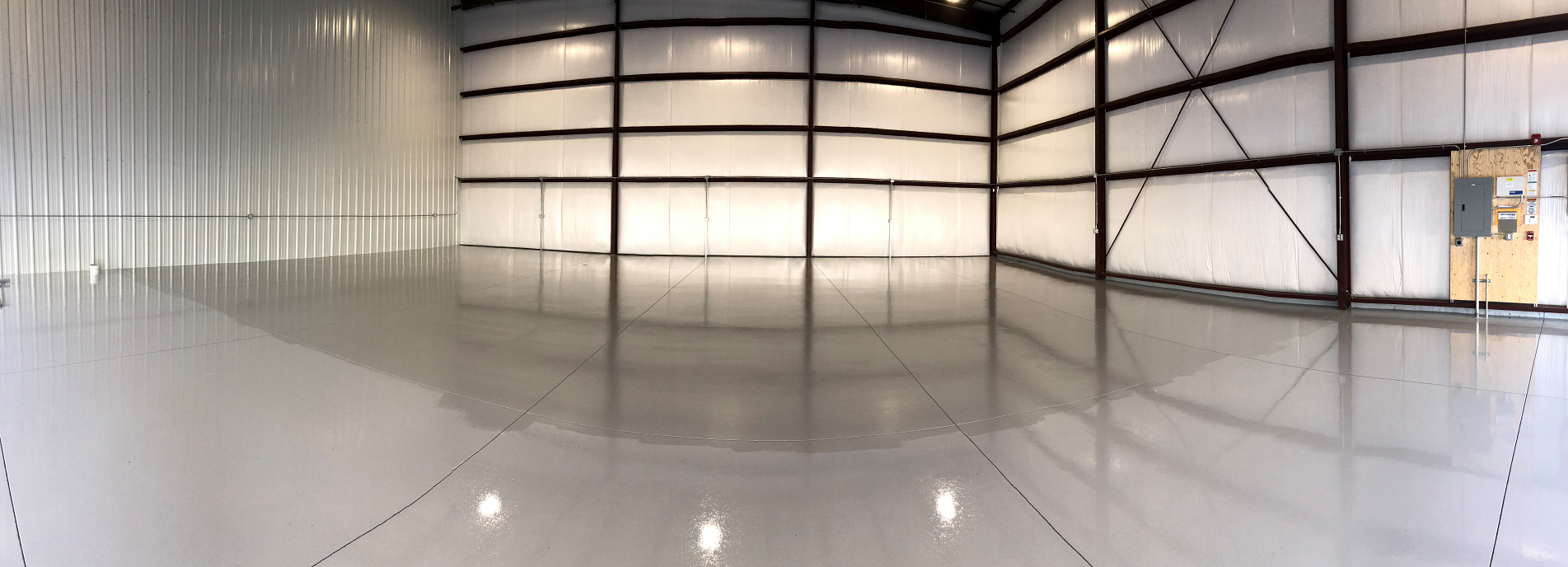
Epoxy sealers form a high-build protective film on the concrete surface, producing a hard, long-wearing, abrasion-resistant finish. They also offer excellent water repellence. They are available clear or pigmented, if you wish to add color. Most products impart a glossy finish. Epoxy sealers are much harder than acrylics. Water-based epoxies bond well to concrete and provide a clear finish, but they are nonporous and do not allow trapped moisture to escape. Epoxies are probably the best choice for concrete countertops and food-preparation areas.
Concrete Polishing & Sealing provides resin epoxy installation, traffic coating, sealing, hardening, densification, and water proofing services. Despite its durability, concrete is a porous material, which means it can absorb water, chlorides, stains, and other water and oil base materials.
Concrete is typically sealed with either a film forming sealer (topical coating) or with penetrating sealer (impregnator). Advantages of coatings include they are seamless, sanitary clean, impermeable, resistant to high traffic, resistant to alkalis, acids and aggressive chemicals.
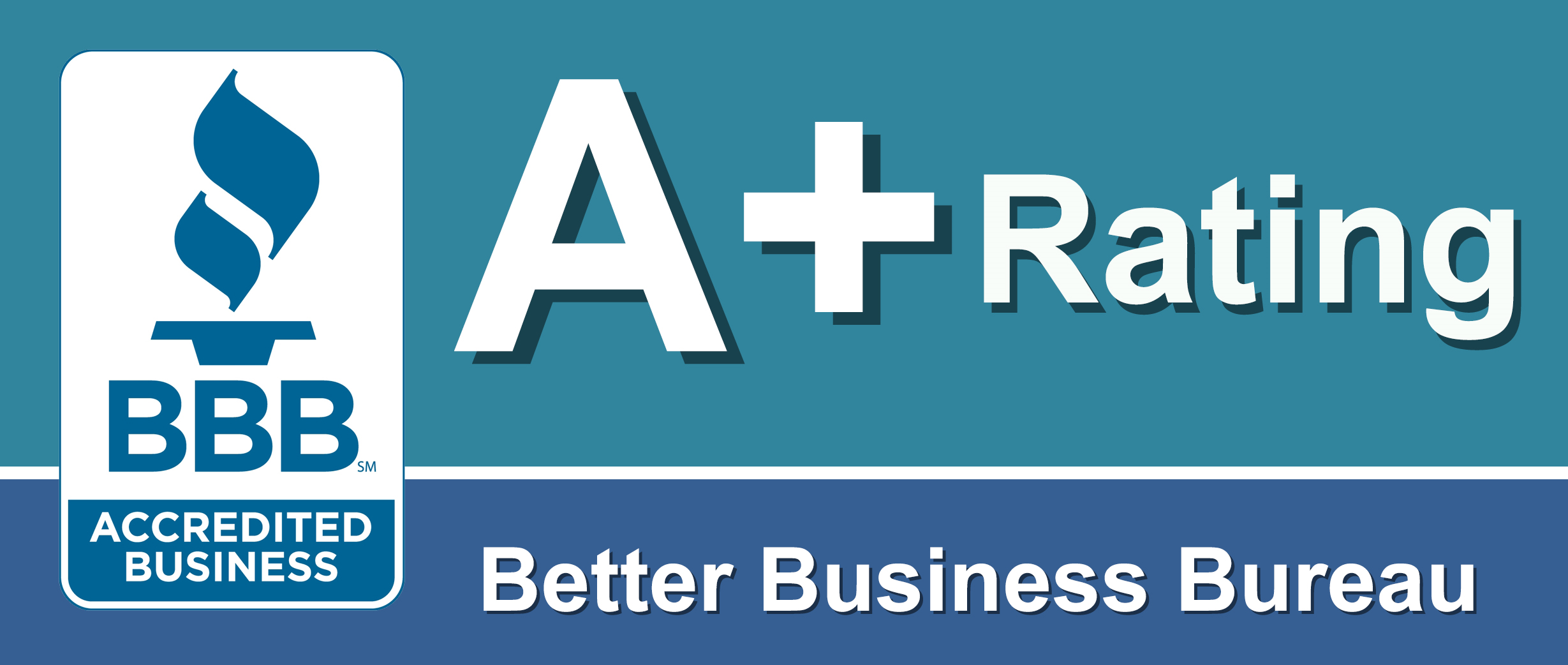
Concrete Polishing & Sealing provides resin epoxy installation, traffic coating, sealing, hardening, densification, and water proofing services. Despite its durability, concrete is a porous material, which means it can absorb water, chlorides, stains, and other water and oil base materials.
Typical areas that would benefit from either coating or impregnator sealing include floors subjected to medium or heavy forklifts and tow motor traffic: in warehouses, distribution centers, automotive assembly plants, manufacturing plants, textile mills, coolers and freezers, food processing plants, service garages, grocery stores, discount retail stores, hub transfer facilities, commercial buildings, and most concrete floors needing rehabilitation.

